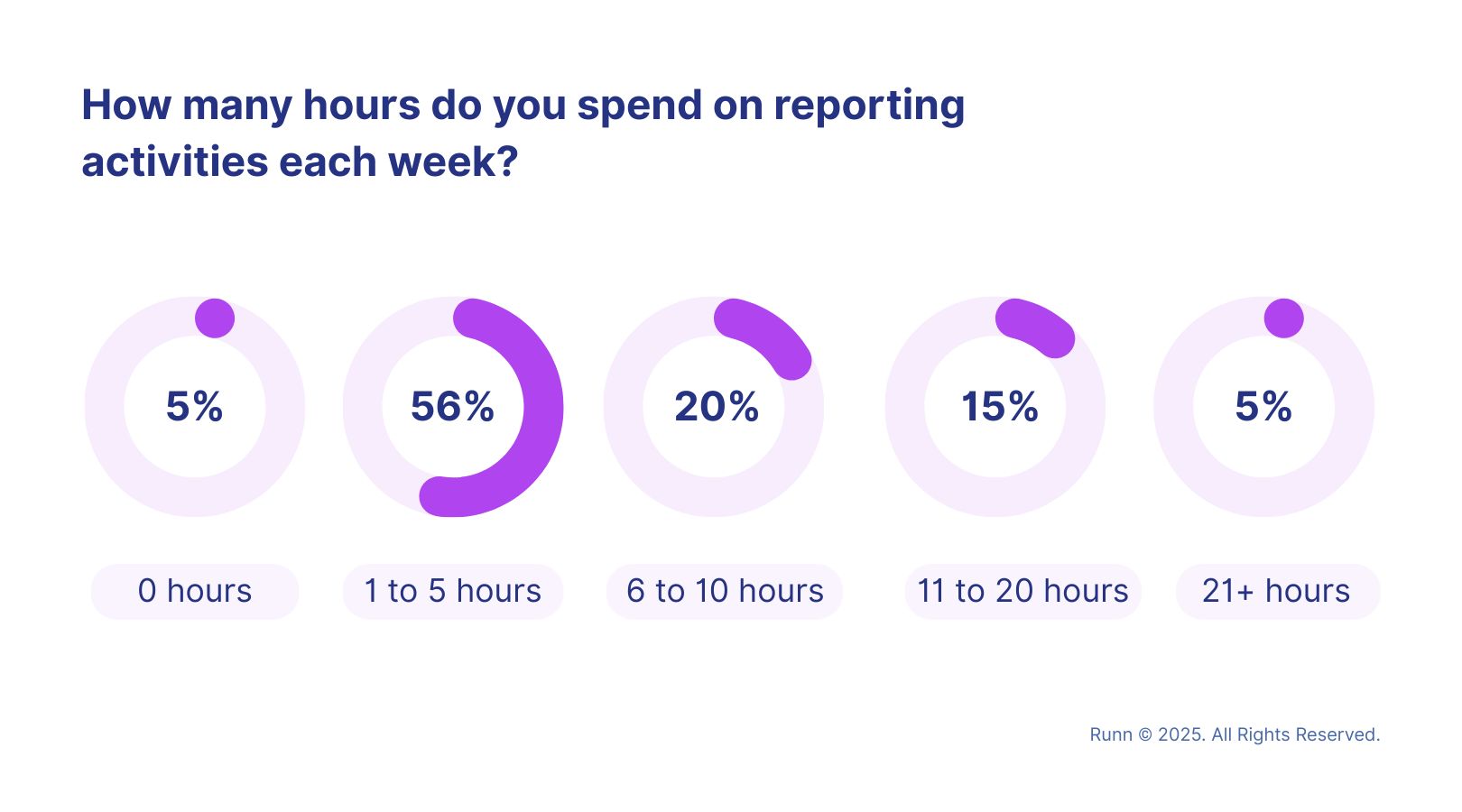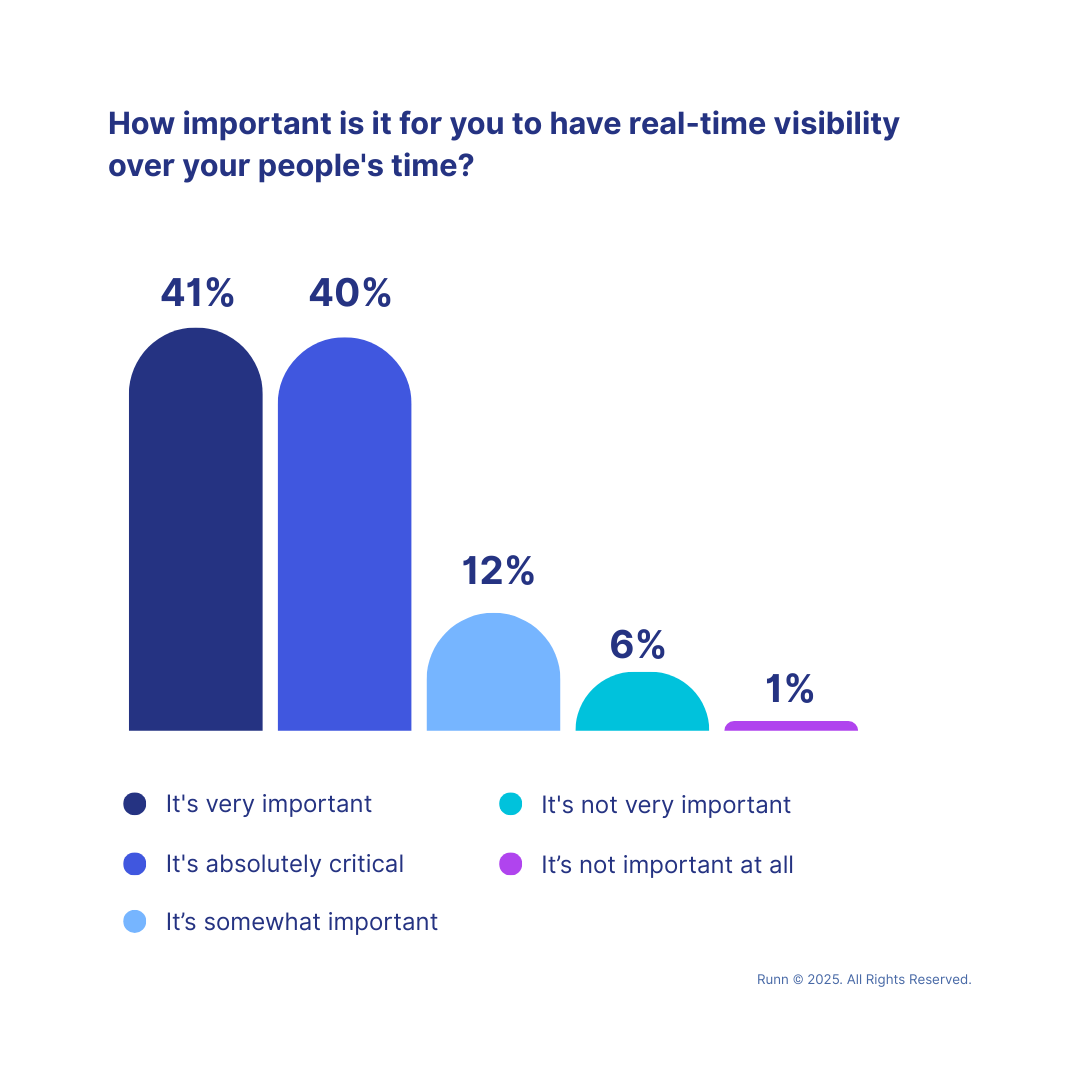Resource managers lose up to a day each week to reporting. Discover why visibility matters and how smarter tools can free time for strategic work.

Resource managers juggle schedules, balance workloads, and ensure the right people are on the right projects at the right time. But for many, a huge chunk of their week isn’t spent on strategic planning or problem-solving, it’s spent on reporting.
Our latest research reveals a startling reality: resource managers are losing the equivalent of an entire workday each week just generating and sharing reports. This administrative burden is slowing down organizations and keeping resource managers from focusing on the work that actually drives performance.
Resource managers play a critical role in keeping organizations running smoothly, but too often their time is eaten up by reporting. In fact, many are spending the equivalent of a full day each week just pulling data together and generating reports.
According to recent findings:
This isn’t just an inconvenience. It’s a productivity drain that keeps resource managers away from higher-value work.

While reporting takes up a lot of time, it also provides valuable insights across the business. Respondents consistently noted that the data and forecasts produced by resource management functions are vital to:
This highlights that the issue isn’t whether reporting is important, it’s how to make it more efficient.
There’s a strong consensus that having real-time visibility into people’s time is important, if not critical. This is not surprising considering one-third of respondents reported experiencing challenges caused by a lack of visibility into employee availability.
Without clear insight into who is available, when, and for how long, teams can face coordination issues, underutilization, or even burnout due to overbooking. Improving transparency around scheduling and availability is likely to remain a continual priority for companies striving to optimize operational efficiency and productivity.

Keep reading: 5 Resource Management Reports for Better Decision-Making
The future of resource management will hinge on reducing the reporting burden while increasing transparency. Companies need tools that:
With the right systems in place, resource managers can focus on what really matters: ensuring the right people are in the right place at the right time — not wrestling with spreadsheets.
Looking for more resource management insights? Download our full report here: